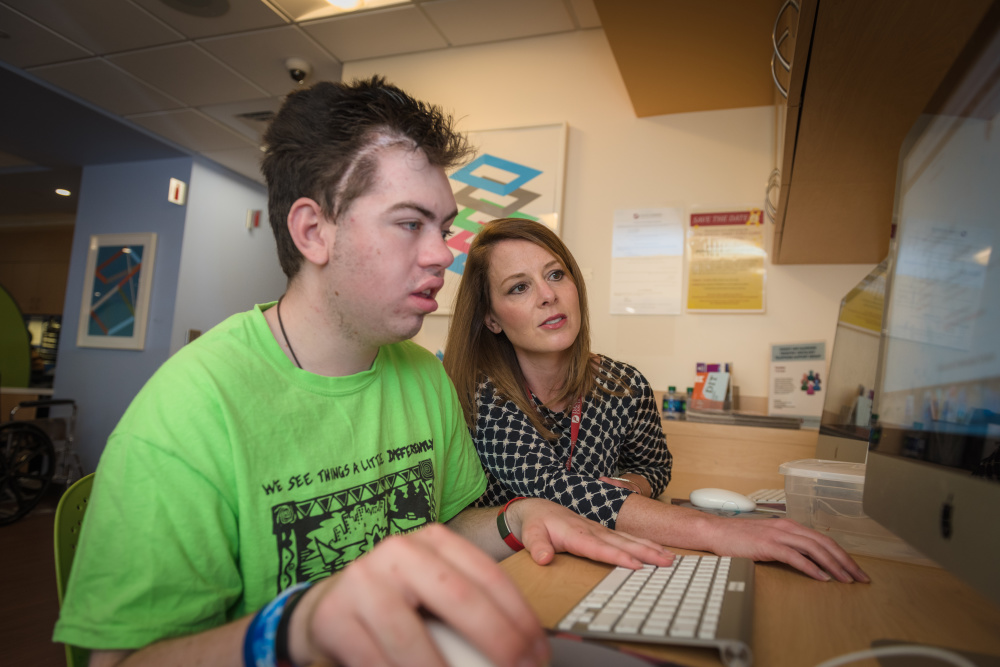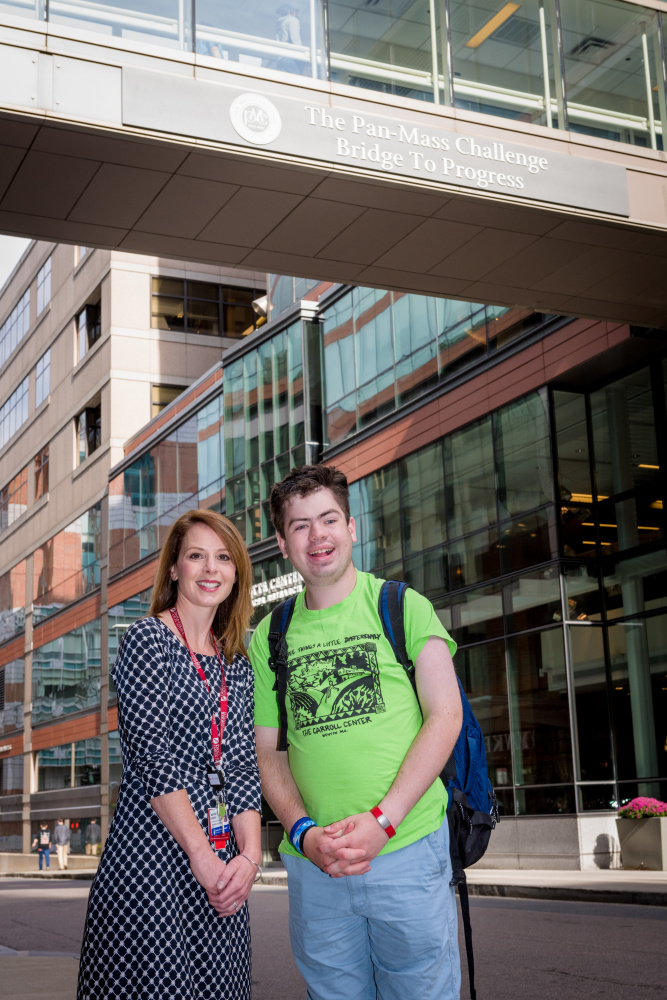
Harry Clark has faced many academic challenges in his dozen years of brain cancer treatment, but through surgeries, radiation, and chemotherapy, one person has always been there to guide and reassure the high school junior and his family on scholastic matters.
School psychologist Marybeth Morris, EdM, is one half of a dynamic duo supporting pediatric patients who struggle in school after cancer treatment. Morris and clinical psychologist Lisa Northman, PhD, are head of the School Liaison Program at Dana-Farber/Boston Children’s Cancer and Blood Disorders Center which works with the families and schools of pediatric patients diagnosed with cancers affecting the central nervous system such as brain tumors, neuroblastomas, and leukemias. Connecting with teachers, principals, school administrators, and therapists, they help devise educational plans that best fit each young patient’s academic and psychosocial needs, treating children from the completion of treatment through high school.
“Teachers and administrators come and go, and it’s overwhelming getting everyone up to speed on Harry’s progress and needs,” says Eunice Groark, Clark’s mother. “When we’re in a school meeting and I look over and see Marybeth sitting there, I know everything is going to be all right. She understands exactly what’s best for Harry.”

One of the biggest challenges facing these children are side effects that can be attributed to diagnosis or treatment – also known as late effects. These can occur months or even years after treatment, and may include physical/sensory issues (fatigue, organ damage, hearing loss); visual problems (double or cloudy vision, visual field loss); neurocognitive deficits (processing speed, memory, organizing, problem-solving); and executive dysfunction (organization, self-control and regulation). Morris and Northman are well-versed in them all after a decade working together, and they provide consultation, education, and advocacy to families like Clark’s as they navigate each hurdle from kindergarten through high school.
“Late effects can feel like a second diagnosis,” says Morris. “Parents are told during treatment of the potential for late effects, but at that point they are in survival mode and focused on the here and now. Then the problems creep up on them; their child might be fine in school to a certain age, but then suddenly start having difficulty processing or understanding the material.”
Because of this unpredictability, Morris and Northman maintain a flexible model of care to meet patients’ needs. Some families check in occasionally with questions, such as how to help with a child’s hearing or visual issues. Others seek counsel more regularly, especially around the school-based meetings at which a student’s Individualized Education Program (IEP) is discussed.
“One little girl I met as a kindergartner couldn’t stay in her seat or write, and barely spoke when she started school,” says Northman. “The faculty, family, and I developed an IEP for her that we updated as she transitioned from elementary to middle to high school. Now she’s getting ready for college – it’s an incredible journey watching kids like her grow.”
Peter Manley, MD, director of the Stop & Shop Pediatric Neuro-Oncology Outcomes Clinic at Dana-Farber, says Northman and Morris are a vital resource for young patients.
“They have a wide breadth of knowledge on what the school is responsible for in terms of providing care, and understand the laws associated with providing education support and how to advocate for the child,” says Manley. “They are also wonderful human beings and colleagues who really care about the patients at Dana-Farber and their families. They want to make sure that each child reaches their full potential.”
Which is why Harry Clark credits Morris for playing a huge impact in tremendously improving his school life. “She helps me find balance,” he says.
